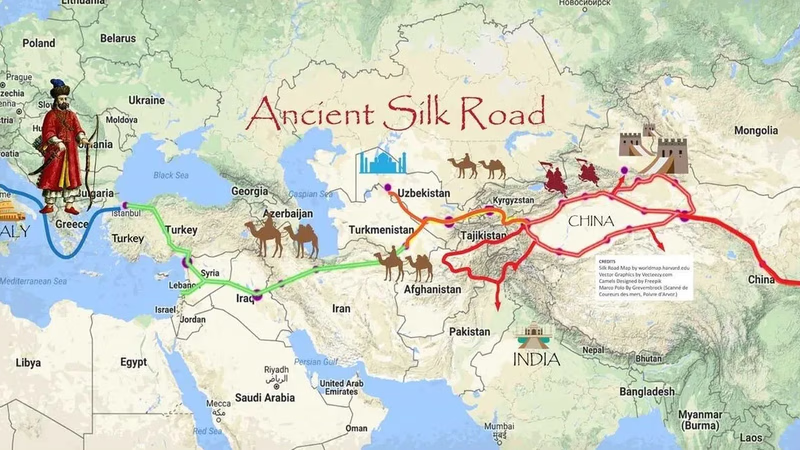
How does Anbar revolutionize trade in West Asia?
In the dynamic landscape of West Asia"s import-export industry, "About Anbar" is emerging as a pivotal Middle East trade platform. Designed to bridge the B2B marketplace in Asia with the unique demands of commodity trade in the Middle East, Anbar offers comprehensive supply chain solutions. With a focus on verified exporters and importers, Anbar ensures that businesses engage with trustworthy partners, enhancing the efficiency and reliability of trade transactions. Anbar"s strategic advantage lies in its regional product listings and market insights, tailored to the specifics of Middle Eastern commerce. By providing a robust trade advertising platform, Anbar facilitates business networking opportunities that are crucial for fostering long-term partnerships and expanding market reach. This is particularly beneficial in a region where establishing trust and building relationships are integral to successful trade. The name "Anbar" reflects the essence of what the platform offers—an oasis of resources in the Middle Eastern trade desert. Anbar provides businesses with a centralized hub for all their trading needs, streamlining the complexities often associated with international trade.
The benefits of working with Anbar are manifold. Businesses not only gain access to a network of verified trade partners but also benefit from market insights and advertising opportunities that enhance their visibility in the region. By facilitating direct communication and providing AI-powered marketing solutions, Anbar makes it easier for businesses to navigate the intricate trade dynamics of West Asia. Aritral, an AI-driven B2B platform, complements Anbar"s offerings by simplifying international trade in commodities and raw materials, further bolstering the efficiency and reach of businesses operating in this vibrant economic region. "
No profiles available to display
-
Discover Anbar: A Leading Middle East Trade Platform

In the dynamic landscape of West Asia"s import-export industry, "About Anbar" is emerging as a pivotal Middle East trade platform. Designed to bridge the B2B marketplace in Asia with the unique demands of commodity trade in the Middle East, Anbar offers comprehensive supply chain solutions. With a focus on verified exporters and importers, Anbar ensures that businesses engage with trustworthy partners, enhancing the efficiency and reliability of trade transactions. Anbar"s strategic advantage lies in its regional product listings and market insights, tailored to the specifics of Middle Eastern commerce. By providing a robust trade advertising platform, Anbar facilitates business networking opportunities that are crucial for fostering long-term partnerships and expanding market reach. This is particularly beneficial in a region where establishing trust and building relationships are integral to successful trade. The name "Anbar" reflects the essence of what the platform offers—an oasis of resources in the Middle Eastern trade desert. Anbar provides businesses with a centralized hub for all their trading needs, streamlining the complexities often associated with international trade.
The benefits of working with Anbar are manifold. Businesses not only gain access to a network of verified trade partners but also benefit from market insights and advertising opportunities that enhance their visibility in the region. By facilitating direct communication and providing AI-powered marketing solutions, Anbar makes it easier for businesses to navigate the intricate trade dynamics of West Asia. Aritral, an AI-driven B2B platform, complements Anbar"s offerings by simplifying international trade in commodities and raw materials, further bolstering the efficiency and reach of businesses operating in this vibrant economic region. "
-
Exploring Chemical Trade Dynamics in the Middle East and Asia
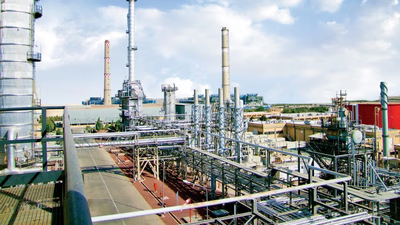
The Middle East is a thriving hub for chemical trade due to its abundant resources, strategic location, and advanced industrial infrastructure. The region is particularly prominent in the production and trade of sulfuric acid, phosphoric acid, ammonia, and industrial gases like oxygen, chlorine, and nitrogen. Sulfuric acid, used in fertilizers and industrial processes, is a key export product in the Middle East, supported by verified exporters and importers leveraging regional platforms for effective trade operations. The market insights provided by platforms like Aritral enable buyers to connect directly with manufacturers and suppliers. Phosphoric acid is equally significant, especially in agricultural applications, with Southwest Asia witnessing growing demand for fertilizers and pesticides that utilize this compound. Oxygen and chlorine play vital roles in medical, industrial, and oil and gas sectors in the Middle East. Chlorine is widely integrated into chlor-alkali and ethylene dichloride units, essential for petrochemical production. Verified marketplaces facilitate the trade of these gases, ensuring smooth supply chain operations.
Nitrogen, another industrial gas, is heavily traded in Arab nations and the Persian Gulf, driven by its importance in agriculture and industrial manufacturing. The detergent and hygiene market in Asia and the Middle East is booming, with steady import and export of soaps, cosmetics, and cleaning agents. Ammonia, a critical chemical for fertilizers, sees robust demand across Middle Eastern markets, with the region’s largest producers utilizing integrated trade platforms for global outreach. Verified suppliers and buyers of fertilizers and pesticides continue to support agricultural growth in West Asia. Aritral, an AI-driven B2B platform, streamlines commodity trade in these sectors, offering services like product listings, direct communication, and market insights. These tools empower businesses to navigate regional dynamics effectively and take advantage of Middle Eastern chemical industry trends.
-
Middle Eastern Construction Materials Market Insights

The construction materials market in the Middle East and West Asia is a dynamic hub of trade activity, fueled by growing infrastructure projects and urbanization. Key commodities such as brick, plaster, cement, sand, wood and timber, clay, ceramic tiles, glass, lime, paint, concrete blocks, rebar, and beams are essential components of this thriving sector. Regional B2B marketplaces and trade platforms are pivotal in connecting verified exporters and importers, facilitating seamless transactions and fostering business networking opportunities.
Brick, for instance, is a cornerstone of the Middle Eastern masonry materials market, with significant import and export activity across West Asia. The trade of plaster, particularly gypsum-based products like Plaster of Paris, is driven by demand from Asian gypsum industries and construction markets. Cement, a critical building material, is produced extensively in the Middle East and exported globally, underscoring its importance in regional and international markets.
Sand, wood, and timber also play crucial roles in construction, with active trade channels for raw materials in West Asia. The clay market, including ceramic tiles, is equally vibrant, supported by robust buying, selling, and export activities. Glass, lime, and paints are other indispensable materials, with specialized markets for each within the region.
Concrete blocks, rebar, and beams are vital for structural applications, with trade centers across Asia and the Middle East facilitating their movement. These materials fall under various trade categories, such as HS codes 25, 44, 68, 69, and 70, highlighting their significance in global commodity exchanges.
Platforms like Aritral simplify these transactions by offering product listings, direct communication, and AI-powered marketing solutions. By fostering transparency and efficiency, such platforms empower stakeholders in the construction materials sector. This strategic approach to trade ensures that businesses in West Asia and the Middle East remain competitive and well-connected in the global marketplace.
-
Agricultural Trade Dynamics in West Asia and the Middle East
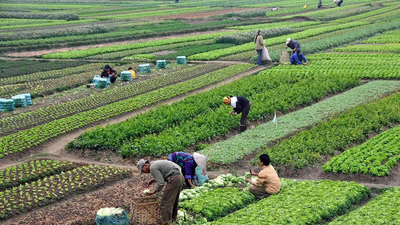
Agriculture forms a cornerstone of the economy in West Asia and the Middle East, with diverse crops and commodities driving trade across the region. The agricultural market encompasses vegetables, fruits, cereals, legumes, medicinal plants, flowers, animal feed, industrial crops, seeds, seedlings, livestock, and fisheries. These products are integral to regional and global supply chains, connecting verified exporters and importers through B2B marketplaces in Asia.
Vegetables such as pumpkin, eggplant, pepper, cabbage, corn, celery, beans, green beans, tomatoes, and cucumbers are particularly vital summer crops. These items see robust demand in Middle Eastern markets, with imports and exports facilitated by regional trade platforms. Similarly, the fruit market—comprising citrus, melons, and nuts—is a major driver of international commerce, with West Asia playing a pivotal role in supply chain solutions.
Fisheries and aquatic products, including fish, crab, shrimp, and aquatic meat, constitute another significant sector. The Middle East International Fisheries and Seafood Market is a hub for buying, selling, exporting, and importing aquatic goods. Livestock trading, covering chickens, poultry, and other animals, also thrives in the region, supported by business networking platforms.
Cereals and legumes such as wheat, barley, lentils, and chickpeas are staples in trade, alongside industrial crops like oilseeds. Medicinal plants and ornamental flowers further diversify the agricultural portfolio, with specialized markets catering to these niche commodities. Animal feed, seeds, and seedlings are crucial for sustaining agricultural production and livestock health.
Despite its importance, agriculture in West Asia faces challenges such as water scarcity and climate variability, underscoring the need for innovative solutions. Platforms like Aritral address these gaps by enabling verified exporters and importers to connect, list products, and access market insights, fostering efficient trade in crops and agricultural raw materials.
-
Exploring Food Trade Opportunities in the Middle East and West Asia
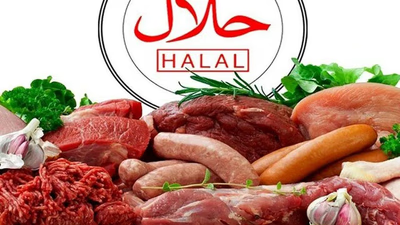
The Middle East and West Asia have emerged as crucial hubs for food trade, driven by dynamic B2B marketplaces and robust import-export networks. These regions showcase immense potential in industries ranging from dairy and meat to spices, snacks, and beverages. The Middle East food industry is fueled by a mix of traditional tastes and modern consumption trends, creating opportunities for verified exporters and importers to leverage regional product listings and market insights.
Dairy products are a cornerstone of this market, with Middle Eastern dairy suppliers playing a pivotal role in meeting the rising demand for milk, cheese, and yogurt. The Asian dairy market complements this with increasing cross-border trade in dairy, driven by advancements in supply chain solutions. Snacks, including those flavored with regional spices, are also witnessing exponential growth in both production and trade, especially via B2B platforms connecting West Asian suppliers with global buyers.
Tea, coffee, and spices remain integral to the cultural and economic fabric of the region. Saffron, cumin, pepper, and cardamom are among the most sought-after spices, with their trade contributing significantly to regional economies. The meat sector, encompassing halal-certified offerings, caters to the specific cultural preferences of Arab and Muslim populations, bolstering demand for international trade partnerships. Meanwhile, the canned foods and beverages market is evolving, with a rising focus on halal drinks and packaged convenience foods.
Emerging trends suggest a growing emphasis on eco-friendly food production and modern packaging technologies, particularly in the West Asian food market. Platforms like Aritral facilitate seamless trade by offering regional product listings, market insights, and AI-powered marketing, helping businesses navigate challenges such as food security and logistics. These innovations are reshaping the food production and supply market, making the Middle East and West Asia indispensable players in the global food trade.
-
Middle Eastern Gemstone Trade Platform

The Middle East and West Asia have long been recognized as hubs for the trade of precious gemstones, natural stones, and minerals. With a rich history of mining and craftsmanship, these regions are home to some of the world's most sought-after commodities, including turquoise, ruby, emerald, lapis lazuli, and pearl. However, navigating the complexities of international trade in such high-value goods can be challenging. This is where Aritral.com steps in as a transformative B2B platform. By leveraging AI-driven technologies, Aritral simplifies the process of connecting suppliers, exporters, and importers in these markets. Suppliers can create detailed product listings for gemstones and minerals, ensuring their offerings are visible to a global audience. Exporters benefit from AI-powered marketing tools that target the most relevant buyers, while importers can directly communicate with trusted suppliers to negotiate deals. Aritral’s profile management system further enhances transparency, allowing businesses to showcase their credibility and expertise in the gemstone trade.
The platform also provides insights into market trends, helping traders make informed decisions in the dynamic Middle Eastern and West Asian markets. For example, the demand for Persian turquoise, known for its vibrant color and historical significance, continues to grow internationally. Similarly, the ruby and emerald markets are thriving due to their aesthetic appeal and investment potential. By streamlining supply chain solutions and fostering reliable connections, Aritral ensures that businesses in the gemstone sector can thrive in a competitive global marketplace. Sign up today on Aritral.com to explore these opportunities and create your profile to tap into the lucrative Middle Eastern and West Asian gemstone trade.
-
The Dynamics of Metals Trade in the Middle East
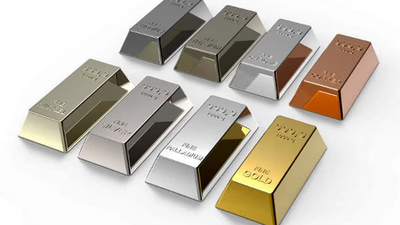
The metals industry in the Middle East and West Asia plays a pivotal role in shaping the region’s economy, trade, and industrialization. Aluminum, widely used after iron, is a cornerstone of industrial applications due to its lightweight properties, corrosion resistance, and affordability. Countries like Saudi Arabia and the UAE are emerging as key players in aluminum production, leveraging advanced technologies and abundant resources to dominate the regional market. Similarly, steel and iron are fundamental to infrastructure development, with Western Asia witnessing growing demand driven by urbanization and industrial projects. The Asia Iron and Steel Market is becoming increasingly competitive, with price fluctuations influenced by global supply chains and local production capacities. Precious metals like gold and silver hold significant economic and cultural importance in West Asia. The Middle East Gold Market is thriving, with Arab nations such as Saudi Arabia and the UAE being major traders and consumers. Gold prices are shaped by global trends, local demand, and mining reserves within the region.
Silver, valued for its industrial and ornamental uses, sees steady demand, with factors like mining output and technological applications affecting its price. Copper and zinc are integral to the region’s industrial growth. The West Asia Copper Exchange facilitates trade and pricing, while zinc remains a vital component in construction and biological applications. Platinum and nickel represent emerging opportunities, with Middle Eastern markets increasingly integrating these metals into supply chains for high-tech industries. Trade platforms like Aritral enhance connectivity among verified exporters and importers, offering AI-driven solutions for product listing, communication, and marketing. By connecting businesses across the Middle East, such platforms streamline supply chain operations and foster growth in the metals sector. The region’s vast metal reserves and strategic trade networks position it as a key global player in the commodities market, with opportunities for expansion in both traditional and high-tech industries.
-
Exploring the Economic Pulse of the Middle East Market
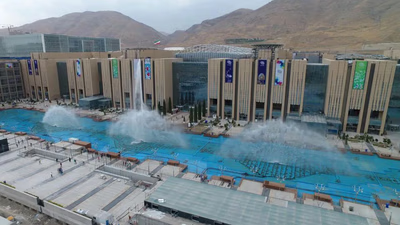
The Middle East market holds a pivotal role in global trade, serving as a crucial hub for commodities and raw materials exchange. As the region diversifies beyond oil, countries such as Saudi Arabia, the United Arab Emirates, and Qatar are investing in infrastructure and technology to enhance their non-oil economies. The West Asian market, encompassing nations like Turkey, Israel, and Egypt, is increasingly recognized for its economic potential due to strategic geographical positioning and burgeoning industries. Trade platforms focusing on West Asia import-export activities, such as B2B marketplaces, are thriving. These platforms offer regional product listings and connect verified exporters and importers, enhancing supply chain solutions across Asia. This dynamic setting is bolstered by trade advertising platforms and business networking opportunities in countries like Oman, Armenia, and Iraq, which contribute significantly to regional economic integration. The commodity trade in the Middle East is evolving, with a shift not only towards oil-independent sectors but also towards sustainable practices. The region"s markets, specifically in Bahrain, Jordan, and Lebanon, are increasingly investing in diverse industries, including tourism, which is experiencing a resurgence in places like Georgia and Azerbaijan.
This diversification is crucial as countries like Syria, Yemen, and Afghanistan look towards rebuilding their economies. Aritral, an AI-driven B2B platform, plays an integral role in this ecosystem by simplifying international trade through services such as global sales assistance and AI-powered marketing, thereby facilitating direct communication between global traders. "
-
Middle Eastern Mineral Trade: Key Insights and Dynamics
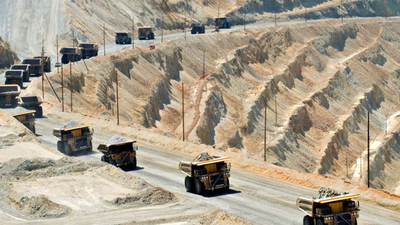
The mineral trade in the Middle East and West Asia is a cornerstone of the region"s economic framework, leveraging its abundant natural resources and strategic location. Key minerals such as chalcopyrite, chromite, hematite, bauxite, galena, sphalerite, coal, and cassiterite are extensively traded, fueling both local industries and global supply chains. For instance, the Middle East is a significant market for chalcopyrite, driven by demand for copper metal ores across Asian B2B marketplaces. Verified exporters and importers play a vital role in facilitating seamless transactions, especially when dealing with West Asian chalcopyrite suppliers.
Similarly, chromite—essential for stainless steel production—sees robust demand in the region, with Middle Eastern traders connecting buyers and sellers through regional product listings and trade advertising platforms. Hematite, an iron ore variant, is another key commodity, with suppliers in Asia and the Middle East supporting construction and manufacturing industries. The bauxite market, driven by aluminum production, highlights the region’s growing relevance in the global supply chain, aided by efficient import-export networks.
The Middle East is also a hub for galena (lead ore) and sphalerite (zinc ore), with these minerals integral to battery production and industrial applications. Coal trade continues to dominate energy sectors, while cassiterite (tin ore) garners attention for its role in electronics manufacturing.
Middle Eastern and West Asian mineral trade benefits significantly from platforms offering market insights, networking opportunities, and verified transactions. Aritral, an AI-driven B2B platform, enhances these dynamics by providing supply chain solutions such as product listings, global sales assistance, and AI-powered marketing, ensuring seamless trade operations across industries."
-
Middle East Marble and Natural Stone Trade Platform
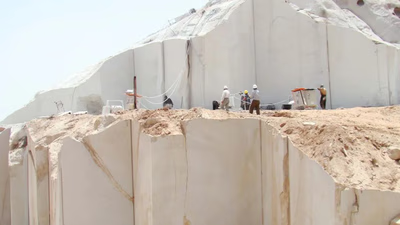
The Middle East and West Asia are renowned for their rich reserves of natural stones, including marble, travertine, sandstone, granite, and quartzite. These materials are not only integral to the region's architectural heritage but also serve as high-demand commodities in global construction and interior design markets. As the largest producers and exporters of these stones, Middle Eastern suppliers face unique opportunities and challenges in connecting with international buyers, ensuring quality standards, and navigating complex supply chains. This is where Aritral.com revolutionizes the trade landscape.
Aritral.com is an AI-driven B2B platform designed to simplify international trade in commodities like natural stones. It empowers suppliers, importers, and exporters by offering streamlined product listings, direct communication tools, and AI-powered marketing insights. Suppliers can showcase their marble, travertine, or granite offerings to a global audience while leveraging data-driven tools to optimize their visibility. Importers gain access to a curated list of verified suppliers, making it easier to source premium materials for construction or design projects. Exporters benefit from global sales assistance, ensuring their products reach markets in Europe, Asia, and beyond.
The Middle East's natural stone market is thriving, with growing demand for high-quality materials for interior and exterior applications. Aritral.com bridges the gap between buyers and sellers, enabling efficient transactions and fostering trust in the supply chain. By creating a profile on Aritral, businesses gain a competitive edge, tapping into a network of reliable partners and unlocking growth opportunities in the lucrative natural stone sector. Sign up today to explore new horizons in the trade of marble, travertine, sandstone, and more.
-
Middle East Petrochemical Trade Insights

The petrochemical industry in the Middle East is a cornerstone of global commodity trade, driven by abundant natural resources and strategic geographic positioning. Ethylene, a fundamental building block in petrochemicals, is produced extensively in the Persian Gulf countries, where demand remains robust due to its applications in plastics and chemicals. Key exporters in the region leverage B2B marketplaces in Asia to connect with verified importers, ensuring streamlined supply chain solutions. Ethylene’s trade dynamics highlight its importance in the production of polyethylene and other derivatives essential for industrial applications.
Polypropylene, another critical petrochemical, sees significant production and export activity in West Asia. The region houses some of the largest suppliers globally, serving markets across Asia and beyond. Southwest Asia’s polypropylene market is bolstered by its competitive pricing and high-quality standards, making it a preferred choice for industries manufacturing plastic products.
Polybutadiene and Styrene Butadiene Rubber (SBR) are vital for the rubber industry, with Middle Eastern production catering to both regional and international markets. Pricing and market analyses reveal steady growth in demand, particularly in automotive and industrial applications. Similarly, Acrylonitrile Butadiene Styrene (ABS) and various resin types, including polyester, phenolic, and epoxy, are key exports from the Middle East, finding usage in construction, automotive, and consumer goods sectors.
Nylon and LPG components like butane and propane also contribute significantly to the region’s trade portfolio. West Asia’s nylon market is thriving due to its applications in textiles and engineering plastics, while LPG trade benefits from efficient supply chain networks connecting Middle Eastern producers to Asian buyers.
Platforms like Aritral simplify international trade by offering product listings, market insights, and AI-driven marketing tools, enabling businesses to navigate the complexities of petrochemical trade effectively.
-
Middle Eastern Petroleum Market Trends and Trade Insights
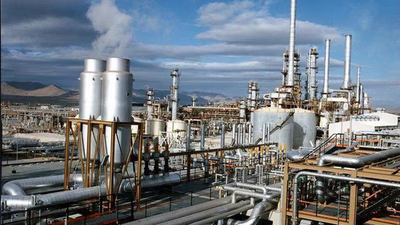
The petroleum products market in the Middle East remains a cornerstone of global commodity trade due to the region’s vast reserves and strategic location. From engine oil to petroleum coke, the diverse range of products derived from crude oil drives economic activity and cross-border trade throughout West Asia. Engine oil, a key component for vehicular and industrial applications, is traded extensively within the region. Middle Eastern car engine oils are known for their quality, with verified exporters and importers leveraging B2B marketplaces and supply chain solutions to streamline transactions. Engine oil traders and production players in West Asia cater to both domestic and international markets, offering regional product listings on specialized trade platforms.
Base oil, the primary raw material for lubricants, is another significant commodity within Southwest Asia. Brokerage for base oil has flourished due to the increasing demand for industrial lubricants and greases. The Middle East hosts numerous commercial players and manufacturers, making it a hub for base oil production and trade. Verified exporters and regional distributors often access market insights through advertising platforms and business networking opportunities.
Bitumen and asphalt, used for road construction and waterproofing, also play a crucial role in the Middle Eastern trade landscape. West Asia boasts a robust market for these products, with key manufacturers and suppliers dominating sales channels. Petroleum coke, or petcoke, continues to be a valuable fuel and raw material for industrial processes, with pricing and supply chain dynamics influenced by regional demand.
Paraffin, both liquid and solid, is a widely traded petroleum derivative. Intermediaries in West Asia facilitate paraffin trade, addressing demand across multiple industries. As a leading exporter of mineral fuels, mineral oils, and waxes, the Middle East’s petroleum market thrives on efficient trading mechanisms. Platforms like Aritral optimize this trade by offering AI-powered solutions for product listing and direct communication between verified exporters and importers.
-
Middle East Art and Craft Trade Platform
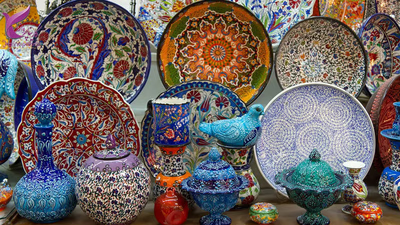
The Middle East and West Asia represent thriving hubs for art and craft trade, with a rich history of cultural craftsmanship spanning centuries. From intricate handmade carpets in Persia to antique manuscripts from Mesopotamia, the region is a treasure trove of artistic products that attract global buyers and collectors. However, navigating the complexities of international trade in these markets—especially for small and medium-sized enterprises (SMEs)—can be challenging. This is where Aritral.com steps in as a transformative B2B platform, simplifying trade and enhancing visibility for suppliers, importers, and exporters.
Aritral.com empowers businesses by offering tailored solutions for showcasing products, managing profiles, and connecting directly with verified buyers and sellers. For artisans and suppliers of handmade jewelry, decorative arts, and traditional textiles, the platform provides unparalleled access to regional and global markets. Through AI-powered marketing tools, suppliers can optimize their listings to reach target audiences effectively, whether they are trading antique sculptures in West Asia or exporting handwoven rugs to Europe.
The platform’s focus on verified exporters and importers ensures trust and reliability, a critical factor in commodity trade within the Middle East. Additionally, Aritral.com’s regional product listings and market insights allow businesses to identify high-demand items like petrochemicals, gemstones, and handcrafted furniture, while also catering to niche markets such as folk costumes or handmade bags and shoes. By bridging the gap between buyers and sellers, Aritral.com fosters business networking opportunities that are essential for expanding supply chain solutions and boosting trade volumes.
For suppliers and exporters looking to capitalize on the booming Middle East handicrafts market or the antique trade in West Asia, Aritral.com provides a seamless platform to showcase their offerings, negotiate deals, and scale their operations globally. Signing up and creating a profile on Aritral.com is the first step toward tapping into these lucrative markets and achieving sustainable growth. Whether you're trading decorative jars or marketing artistic handmade jewelry, Aritral.com is your gateway to success in the international art and craft economy.
-
Who are we and what do we do?
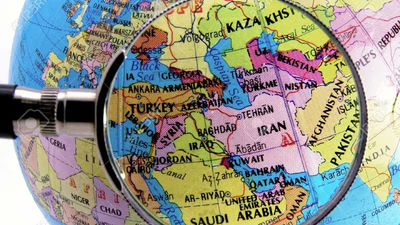
Anbar Asia is a B2B and C2C trade platform established in 2005 in Tbilisi, Georgia, facilitating the sale and purchase of various goods and services across West Asia. The platform offers comprehensive solutions for online transactions, including payment processing, supply chain management, and business communication. Users can create product listings with detailed descriptions, images, and pricing while benefiting from features like user reviews and product comparisons. Anbar Asia enhances transaction security by verifying users and protecting personal information. The platform supports diverse shipping options and encourages direct communication between buyers and sellers to negotiate terms effectively. It also provides educational resources for those unfamiliar with international trade practices, helping them navigate the complexities of exporting and importing goods. By optimizing content for search engines, users can increase visibility for their products. Anbar Asia aims to simplify the trading process while fostering trust among users through feedback mechanisms.
-
Why the name Anbar?
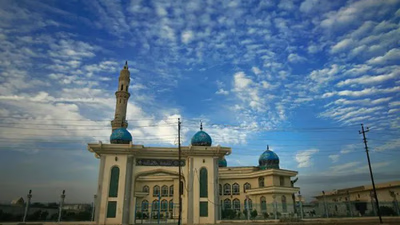
The name "Anbar" is deeply rooted in the historical significance of Al-Anbar city in Iraq, known for its role as a commercial hub and storage site for goods. The "Anbar Asia" website leverages this legacy by facilitating B2B and C2C transactions, allowing users to trade a variety of products compliant with West Asian regulations. The term "Anbar" signifies a vast space for goods, reflecting the platform"s purpose as a virtual repository for diverse commodities. Historically, Anbar was a vital trade center along key routes, flourishing with goods like textiles and perfumes. Despite facing challenges from conflicts, the city remains significant in Iraq"s commercial landscape. The website aims to connect verified exporters and importers across the region, enhancing supply chain solutions and business networking opportunities. By embodying the essence of its namesake, "Anbar Asia" serves as an essential trade advertising platform that promotes regional product listings and market insights.
-
What are the benefits of working with us?
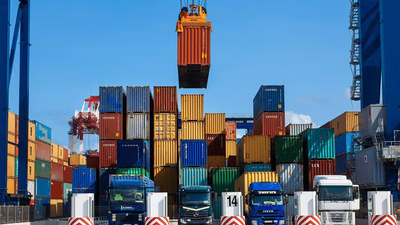
Anbar Asia trading platform offers significant advantages for traders and customers in the Middle East and West Asia. By eliminating the need for physical presence at international exhibitions, it reduces costs related to transportation, booth rental, and travel. The platform enables merchants to showcase their products online, facilitating direct communication with customers without intermediaries. This direct interaction allows for better negotiation and agreement processes, enhancing customer satisfaction. Membership provides access to a vast international database, enabling traders to reach a broader audience and increase sales. Anbar Asia also offers tools for targeted advertising and product comparison, fostering healthy competition among merchants. Security measures ensure the protection of personal information, building trust in online transactions. Additionally, the platform supports logistics optimization through features like online ordering and shipment tracking, further reducing operational costs. Overall, Anbar Asia empowers businesses to expand globally while streamlining their marketing efforts.















